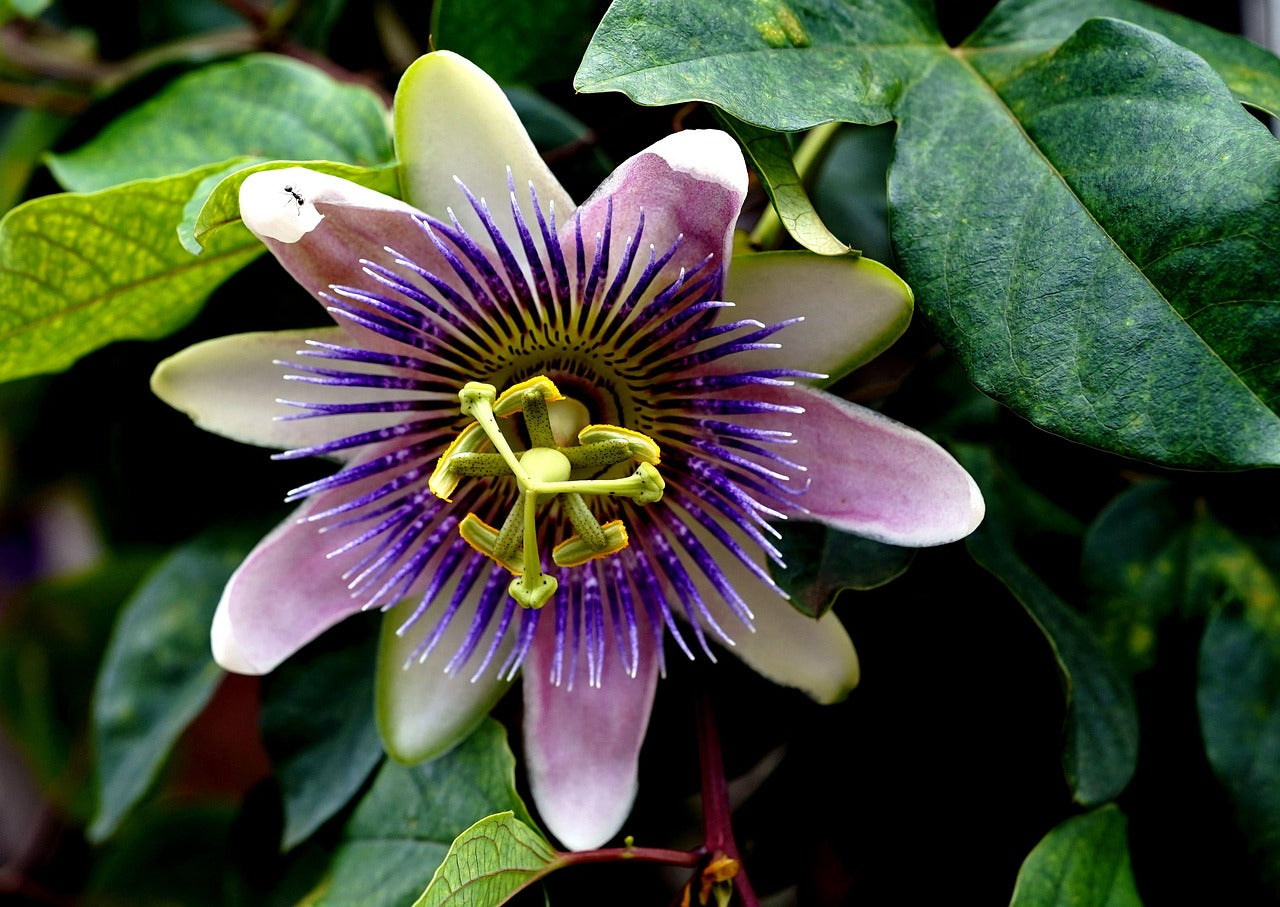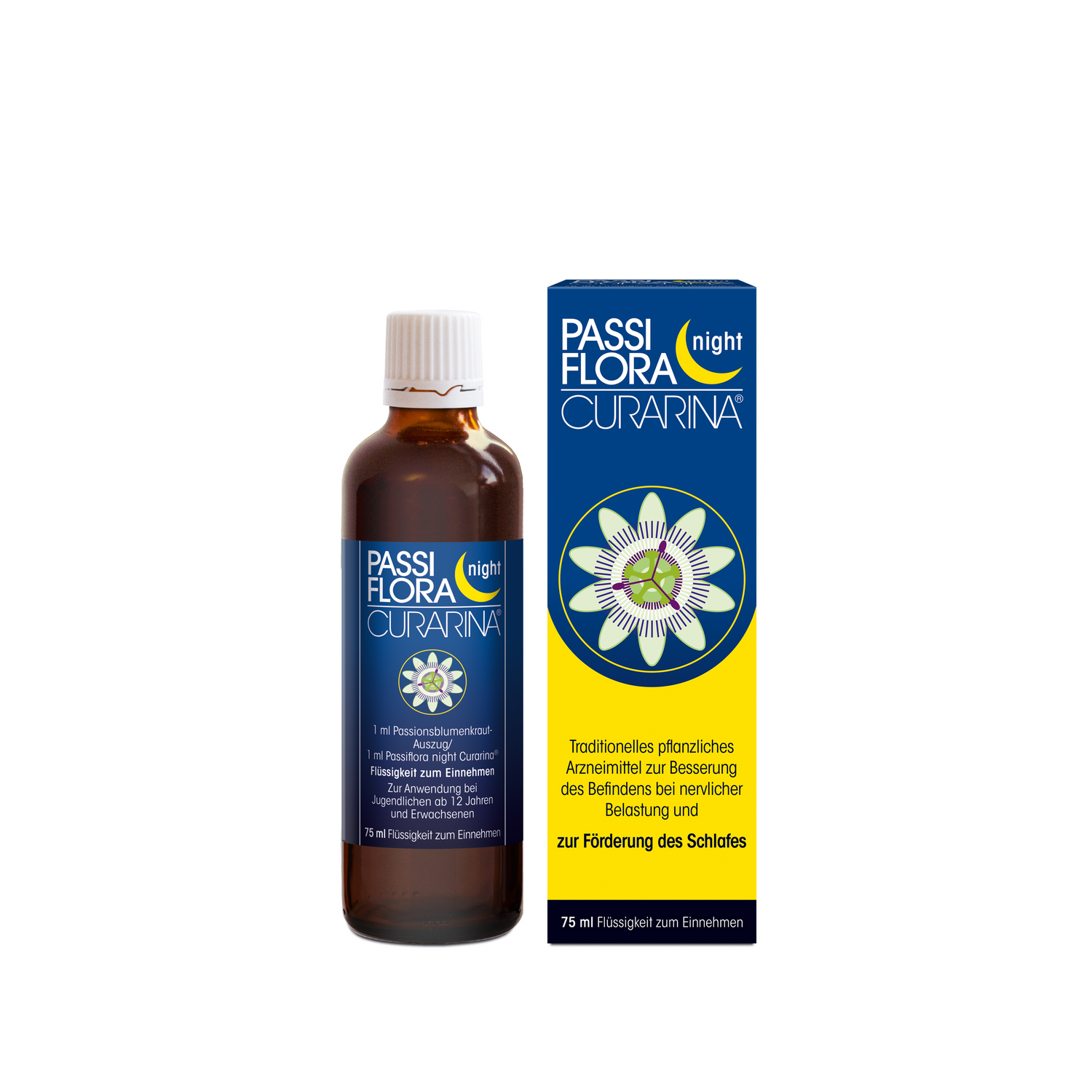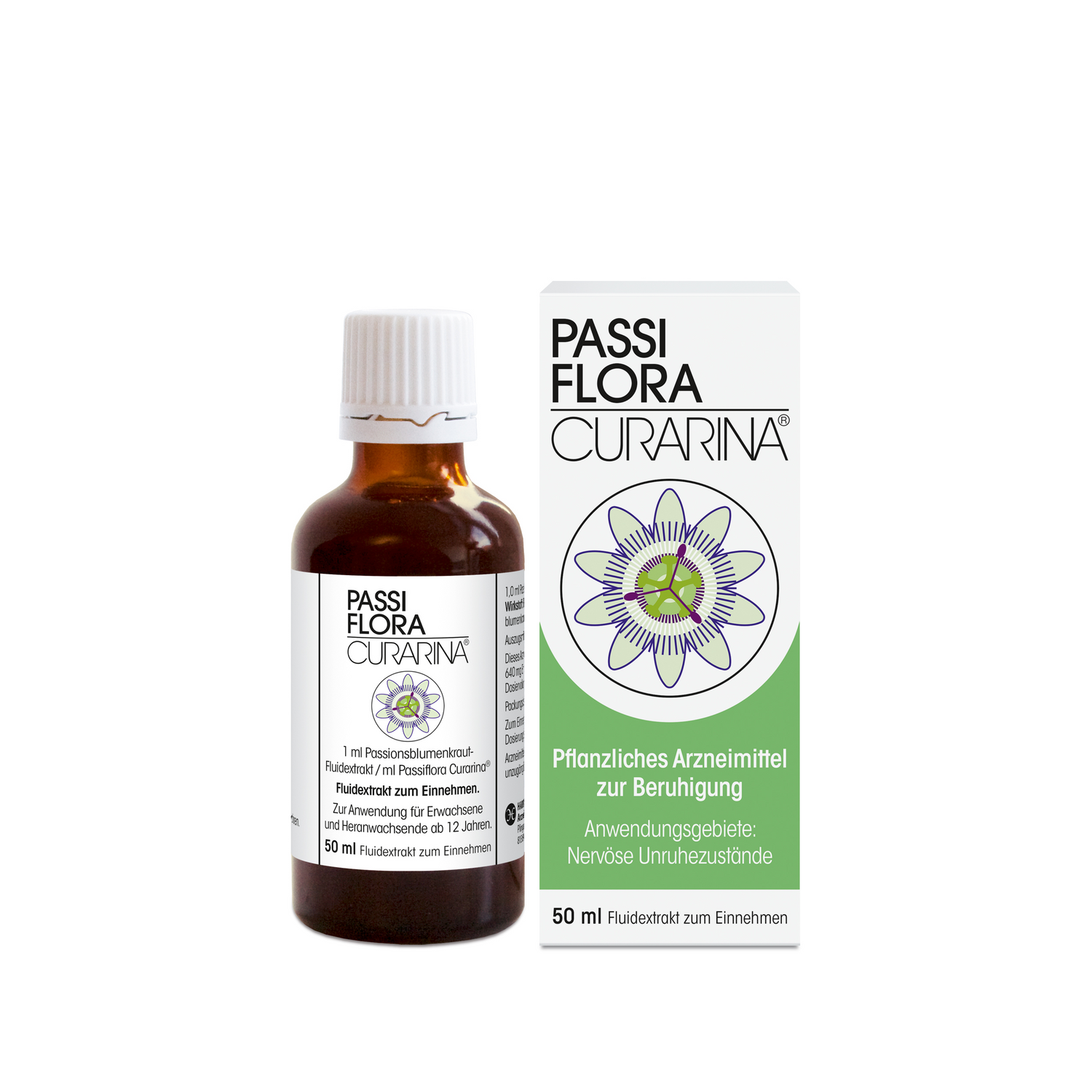
Passionflower
The passion flower (Passiflora incarnata) owes its name to its appearance, which seemed to symbolically depict the mystery of Christ's Passion: "a passionis instrumentis" ("of the instruments of the Passion") of Christ, which finally led to the name Passiflora incarnata in 1751.
The medicinal plant Passiflora incarnata is native to North America.
In its traditional use within Europe, Passiflora is widely known as a sedative. The efficacy of passionflower herbal preparations in treating nervous restlessness and promoting sleep has been confirmed in Germany by an official monograph of the evaluation committees at the Federal Institute for Drugs and Medical Devices (BfArM), Commission E (BAnz. No. 223 of November 30, 1985), as well as in 2014 by a European monograph.
The medicinal effects attributed to passionflower herb are primarily due to the flavonoids. They inhibit the reuptake of gamma-aminobutyric acid (GABA) from the synaptic cleft through an antagonistic effect on GABA-B receptors. Furthermore, they increase
the effect of the neurotransmitter on GABA-A receptors. These are often found on nerve cells and usually lead to inhibition of nerve conduction.
Passionflower herb therefore has a regulating effect on the central nervous system and the sleep center and can relieve nervous restlessness and sleep disorders.
Good to know:
GABA-A receptors are also a target of benzodiazepines and alcohol. However, these bind to a different subunit of the receptors. This explains why passionflower herb
Unlike benzodiazepines and alcohol, it does not lead to habituation.




